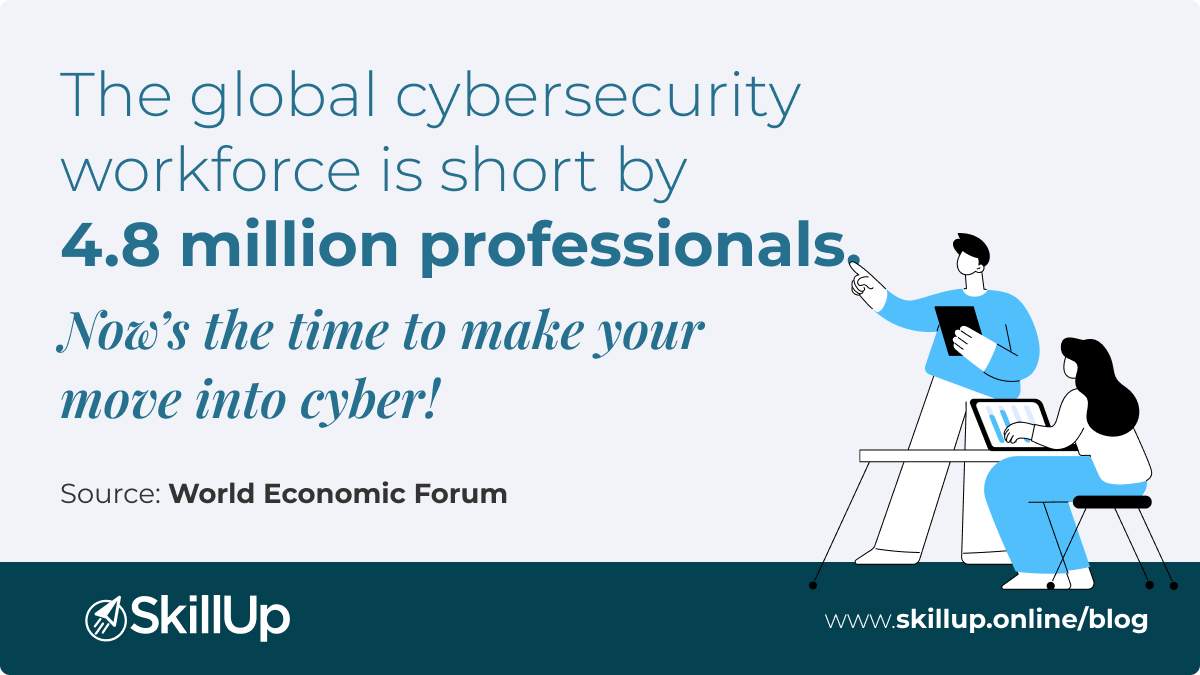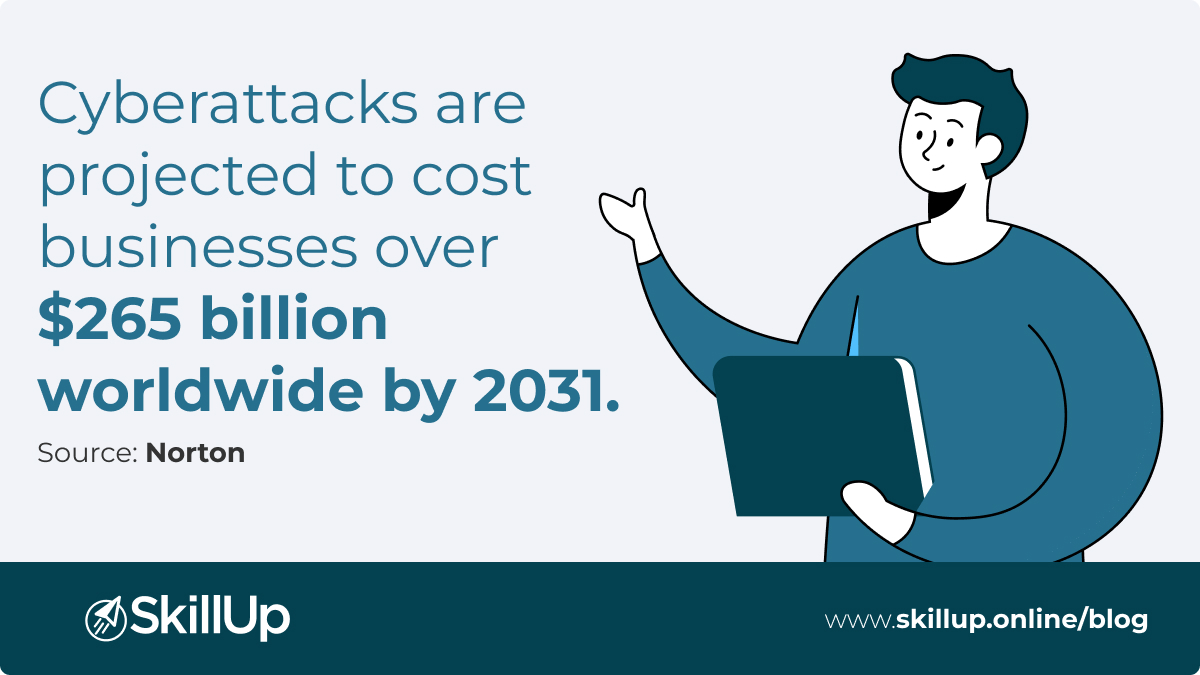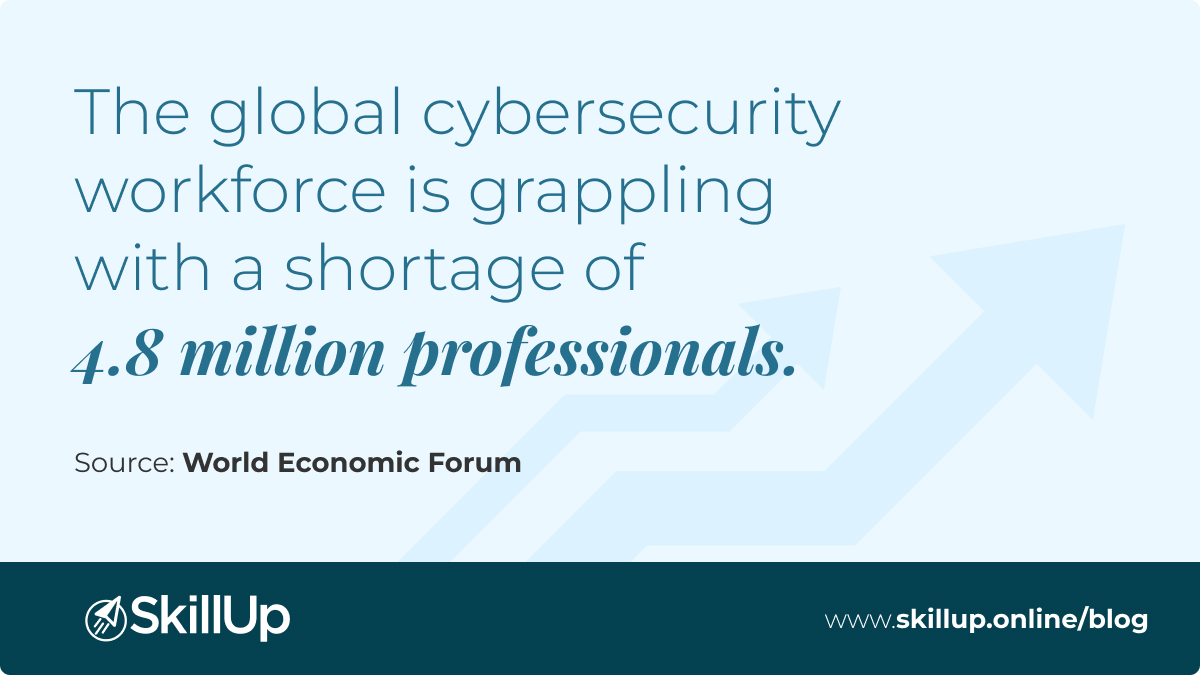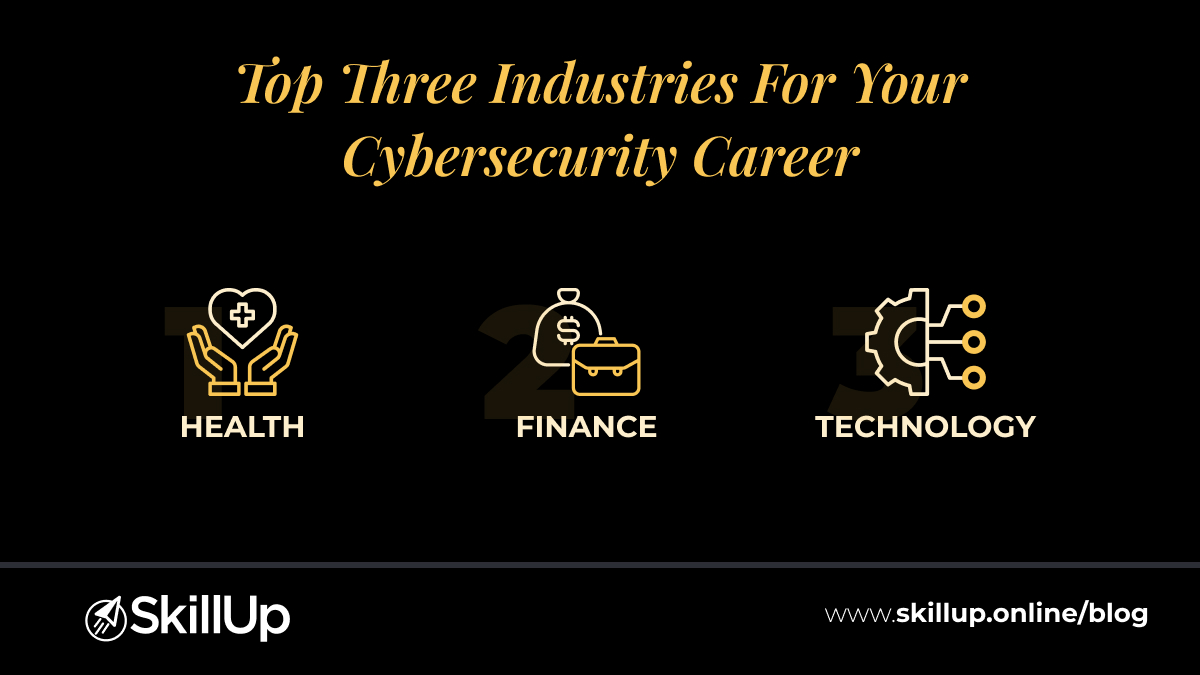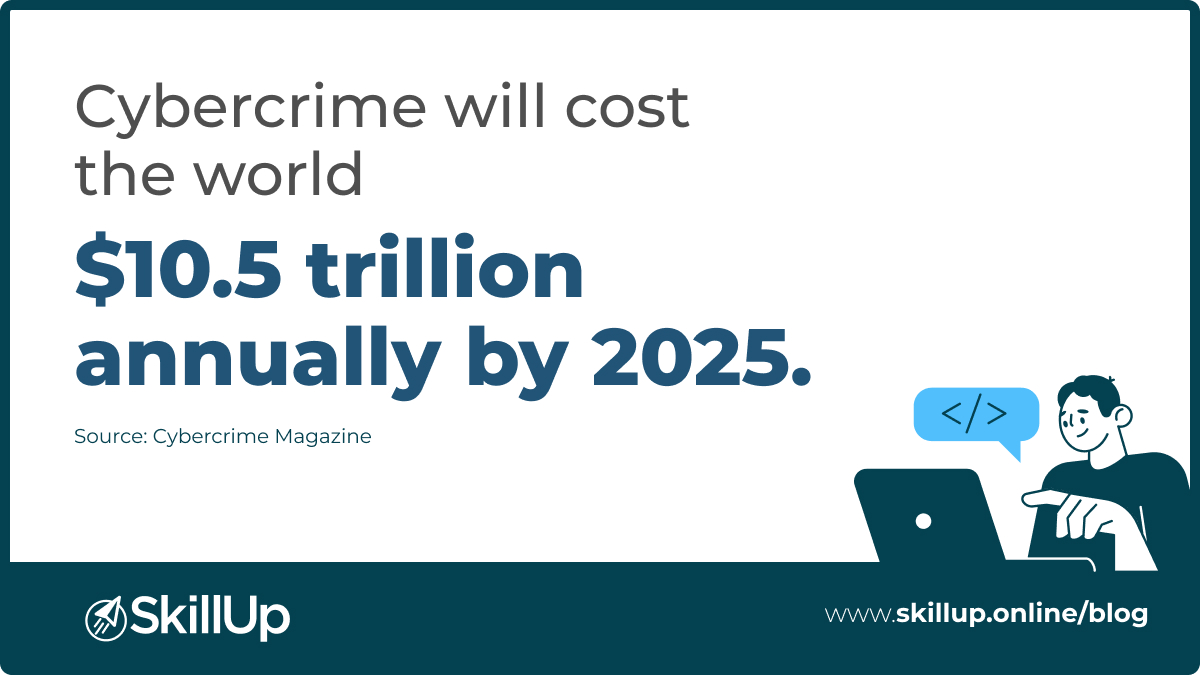The global cybersecurity jobs market is short by as many as 4.8 million professionals, creating one of the largest talent gaps in tech today. This gap is growing as companies move online, data volumes explode, and cyber threats become more sophisticated.
If you’re aiming for a career with real-world impact, strong earning potential, and long-term growth, cybersecurity jobs offer all that and more. In this guide, we’ll break down the top roles, must-have skills, and proven pathways to launch a successful career in this fast-paced field.
What’s Driving the Demand for Cybersecurity Roles?
Several key factors are fueling the rapid growth in cybersecurity jobs, making this one of the most critical fields for the future:
- Expanding digital footprint: As businesses move operations online, their digital attack surfaces grow, exposing them to more potential threats. This includes cloud migration, IoT adoption, and remote work setups.
- Rising cyber threats: Cyberattacks are escalating, with ransomware alone projected to cost businesses over $265 billion globally by 2031.
- Regulatory pressures: Governments and industry bodies are enforcing stricter data protection regulations, like GDPR, HIPAA, and CCPA, driving the need for compliance-focused cybersecurity professionals.
- Supply chain vulnerabilities: High-profile breaches like the SolarWinds attack have exposed critical weaknesses in global supply chains, pushing companies to invest more in third-party risk management.
- Cloud and hybrid IT growth: As organizations adopt hybrid and multi-cloud environments, they need experts to secure complex, distributed networks.
- Talent shortage and high job security: The global skills gap means professionals in this field often enjoy job stability, competitive salaries, and rapid career growth.
High-Growth Cybersecurity Roles
As the demand for cybersecurity professionals continues to outpace supply, certain roles have emerged as particularly critical. Here’s a closer look at some of the fastest-growing and highest-impact cybersecurity jobs in the field:
Security analyst:
- Monitors networks for suspicious activity, analyzes security alerts, and implements security policies. These professionals often act as the first line of defense against potential threats.
- Average US salary: $1,01,993
Penetration tester (ethical hacker):
- Simulates cyberattacks to identify and exploit system vulnerabilities before malicious actors can. This role requires a deep understanding of hacking techniques and defense strategies.
- Average US salary: $112,909
Cloud security engineer:
- Secures cloud environments, manages identity and access controls, and ensures data protection in multi-cloud setups. They play a critical role in protecting cloud-based infrastructure.
- Average US salary: $127,577
SOC analyst:
- Acts as the first line of defense, monitoring and responding to real-time security threats. They often work in high-pressure environments, analyzing logs and identifying potential breaches.
- Average US salary: $77,954
Cybersecurity architect:
-
- Designs secure IT infrastructure, develops security policies, and leads the overall cybersecurity strategy for an organization. This is a senior, highly strategic role.
- Average US salary: $149,227
Application security engineer:
-
- Focuses on securing software development processes, conducting code reviews, and testing for vulnerabilities. They ensure that applications are secure before deployment.
- Average US salary: $123,662
Incident responder:
-
- Manages and mitigates security breaches, often working under intense pressure. They play a critical role in minimizing damage during a cyberattack.
- Average US salary: $65,153
GRC analyst:
-
- Ensures an organization’s security practices comply with regulations and industry standards. They often work closely with legal and compliance teams to reduce risk.
- Average US salary: $88,326
Skills Employers Want in Cybersecurity Candidates
Breaking into cybersecurity jobs requires more than just technical knowledge. Employers look for a combination of hard skills, practical experience, and essential soft skills. Here’s what stands out:
- Technical Skills: Understanding threat detection, network security, encryption, and automation (Python, Bash) is essential. As businesses move to the cloud, skills in AWS, Azure, and GCP security are also in high demand.
- Tools and Technologies: Familiarity with industry-standard tools like Splunk, QRadar, Metasploit, Nessus, and Burp Suite is critical. Employers also expect knowledge of SIEM systems, endpoint detection and response (EDR) tools, and vulnerability scanners.
- Soft Skills: Cybersecurity professionals need to think critically, solve problems under pressure, and communicate complex ideas clearly. These skills are essential for bridging the gap between technical teams and business stakeholders.
- Practical Readiness: Hands-on labs, CTF challenges, and real-world projects make a huge difference in job readiness. Employers often prioritize candidates with proven, practical experience over those with only theoretical knowledge.
If you’re looking to build job-ready skills, consider the wide range of cybersecurity courses and programs from SkillUp. They offer hands-on labs, industry-relevant projects, and personalized learning paths to build real-world expertise.
Top Industries Hiring for Cybersecurity Jobs
Cybersecurity jobs are available across a wide range of industries, each with its own unique security challenges and regulatory requirements:
- Finance and banking: Financial institutions handle massive amounts of sensitive data and high-value transactions, making them prime targets for cyberattacks. They also face strict regulatory oversight, including PCI-DSS and GLBA, to protect customer data and maintain trust.
- Healthcare: Healthcare organizations manage highly sensitive patient data, making them prime targets for ransomware and data breaches. Regulations like HIPAA mandate strict data security practices.
- Government and defense: National security and critical infrastructure protection demand advanced cybersecurity measures. Agencies like the NSA, CIA, and Department of Defense rely on skilled cybersecurity professionals to protect critical systems and confidential data.
- Tech and e-commerce: Digital-first companies like Amazon, Google, and Shopify depend heavily on secure online platforms and customer trust. A single data breach can lead to massive financial losses and reputational damage.
- Energy and utilities: Critical infrastructure, like power grids and oil pipelines, are frequent targets of nation-state attacks. Protecting these assets is a high priority for both public and private sector organizations.
Cybersecurity Career Tips for Beginners
- Build a strong technical foundation: networking, operating systems, and security basics.
- Choose a specialization: offensive (pen testing) or defensive (incident response) roles.
- Gain hands-on experience: labs, CTF challenges, and real-world practice.
- Certify your skills: Consider entry-level certifications like CompTIA Security+, CEH, or AWS Certified Security – Specialty.
- Build a project portfolio: Document projects on GitHub or personal blogs.
- Network and stay current: Join cybersecurity communities and follow industry leaders.
- Leverage structured learning paths: Consider cybersecurity courses and programs from SkillUp for hands-on skills and industry recognition.
A Future-Proof Cybersecurity Career Path
Cybersecurity offers not just job security but also the chance to make a real-world impact. With over 3.4 million unfilled cybersecurity roles, the demand for skilled professionals continues to grow. Whether you’re interested in offensive security, cloud protection, or compliance, the skills you gain are transferable across industries.
To stay competitive, continuous upskilling is essential. For guided, hands-on training, consider exploring the cybersecurity courses and programs from SkillUp, designed to build job-ready skills and practical experience.
